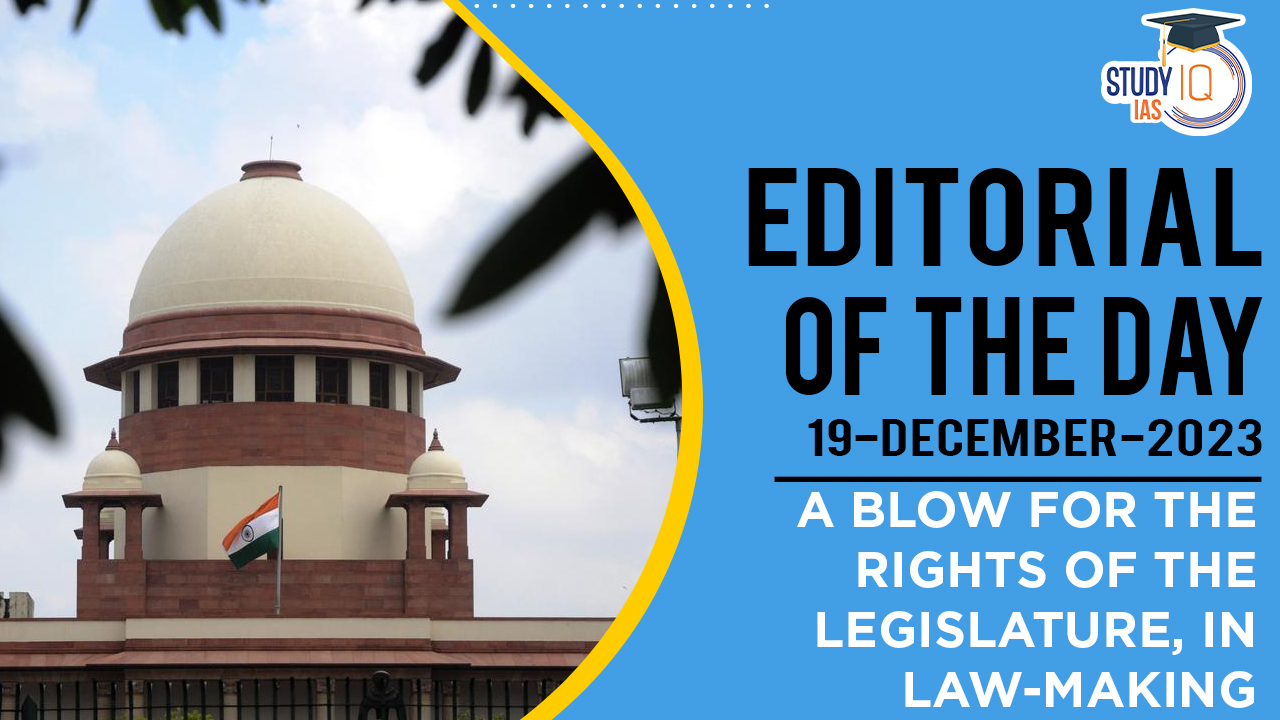Table of Contents
Context: In an important judgment State of Punjab vs Principal Secretary to the Governor of Punjab, the SC pronounced that Article 200 does not give powers to Governor to indefinitely hold a bill.
Supreme Court Reiterates Limits to Delays and Presidential Referrals
- Governors Cannot Indefinitely Delay Bills: The Supreme Court has reaffirmed that Governors must act on state bills within a reasonable time. They cannot indefinitely withhold assent or circumvent the legislature’s power by excessively delaying decisions.
- Mandatory Assent After Reconsideration: If a Governor returns a bill for reconsideration but the legislature re-passes it without changes, the Governor must grant assent. This safeguards the legislature’s lawmaking authority.
We’re now on WhatsApp. Click to Join
Governors and State Bills
While the Supreme Court has curbed Governors’ ability to indefinitely delay bills, a loophole remains: reserving bills for the President’s consideration. This absolute power opens the door for potential misuse and frustration of state lawmaking.
- The Constitution mandates reserving bills that undermine the High Court’s position. However, it lacks clear categorization for other bills that could be sent to the President.
- This ambiguity creates discretionary space for Governors, potentially allowing them to send politically motivated reservations, as seen in Kerala and Tamil Nadu.
- Kerala: When the Supreme Court took up the Kerala government’s petition challenging the Governor’s inaction on Bills for more than 2 years, he gave his assent to one Bill and sent the seven Bills to the President for his consideration.
- Tamil Nadu: The Tamil Nadu Assembly after reconsideration sent the 10 Bills to the Governor without accepting any amendments, then rather than giving his assent, he sent all those Bills to the President for his consideration.
Reservation of Bills by Governors for President’s Consideration
- Article 213: Empowers Governors to promulgate ordinances with presidential instructions if deeming it necessary to reserve a Bill’s provisions.
- This implies that the Governor must exercise judgement within the constitutional scheme.
- The use of “deemed it necessary” suggests that Governors cannot act arbitrarily but must adhere to constitutional principles when deciding to reserve Bills.
- Article 254(2): Instructs that State laws on Concurrent List items prevail if they have presidential assent, even if conflicting with existing central laws.
- The provision implies that a Bill on a Concurrent subject only needs presidential assent if it contradicts central laws; it does not mandate sending every such Bill to the President.


 Utkal Divas 2025: Odisha Foundation Day ...
Utkal Divas 2025: Odisha Foundation Day ...
 List of Military Exercises of India 2024...
List of Military Exercises of India 2024...
 GPS Spoofing and Its Impact in India: A ...
GPS Spoofing and Its Impact in India: A ...





















